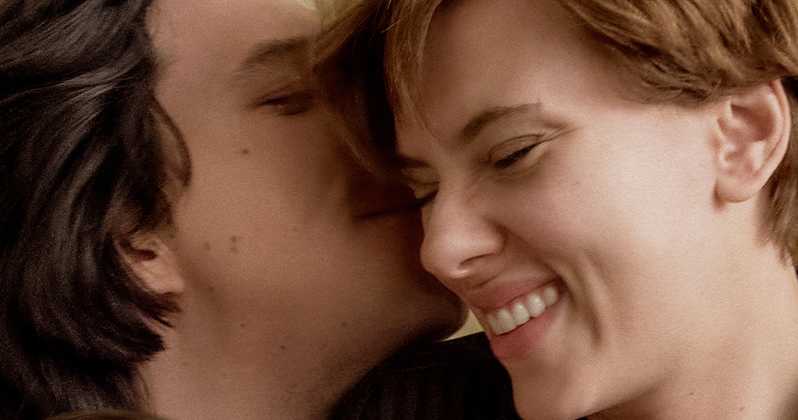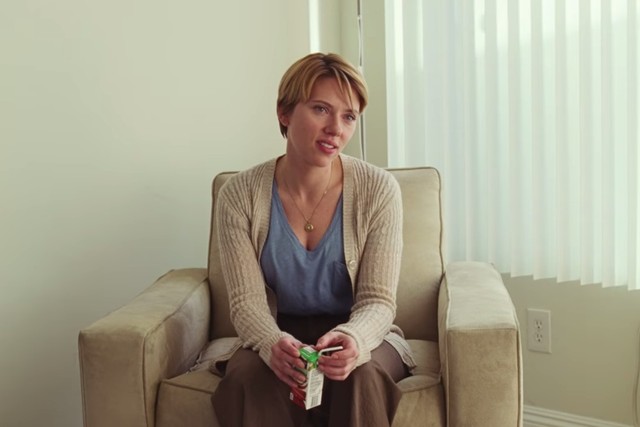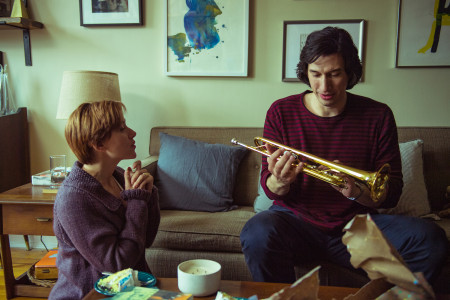The day I saw MARRIAGE STORY, my girlfriend and I were fighting.
Not fighting fighting. We didn’t raise our voices, there wasn’t a debate. It was an unspoken fight, maybe even one-sided. But it was, in some capacity, fighting. Fighting for us, a more rare occurrence than not, comes heathlily in the form of silent frustration; if it boils over, which is also rare, it’s catty, petty, all those words you use when you know you’re in the wrong and external forces have made the situation circumstantially worse.
This fight didn’t end, per se, it just fizzled out. It involved poor scheduling and being spread too thin and having no gas in the car and large Amazon package deliveries and, ironically, having to rush to see MARRIAGE STORY. It’s inconsequential now—it was always going to be, we’ve been together four years and counting and this, like many fights, was stress-related—but at the moment all those fixations mattered: truly the devil is in the details.

Noah Baumbach understands this, and his fixation on details and the way he writes entire movies centered around the quotidian is something that’s made him one of independent cinema’s most reliable auteurs over the last two decades. MARRIAGE STORY, a procedural look at divorse and the many ways it makes people lose sight of themselves and each other, is perhaps as cut-and-dry a story as the director has attempted this decade, filled with flashy, meaty performances and Baumbach’s many comedic quirks and ticks, but also a film that narratively lingers on details not unlike having no gas in the car or large Amazon deliveries.
Smartly, Baumbach starts at the beginning of the end. While we meet Charlie (Adam Driver) and Nicole (Scarlett Johansson) through a lengthy montage in which the two are narrating passages they wrote for a marriage counselor about the things they love about the other person, their marriage is already broken, the spark of their love already fleeting. A lesser writer might have eased us into a fallen love, conventional wisdom being that our investment in them as a viewer is directly related to our connection to their relationship. But Baumbach gladly accepts this emotional handicap, focusing specifically on the two as people in the process, whether they know it or not, of confronting their own damaged identities and how that relates to the other person—that they have a kid only ups these emotional stakes eventually, but Baumbach nonetheless wants to earn the rare moments of Charlie and Nicole’s rediscovered affection for each other without the cheapness of relying on our investment in their past.

This of course isn’t an easy task: How do you make us care about two people who have fallen out of love without ever really showing them in love? How will the audience recognize it? How will those moments re-manifest themselves without seeming hackneyed? To start, you get two actors who know how to fill space by themselves. Johansson, when she’s not playing superheroes or saying painstakingly dumb things, is excellent at this—just look at LOST IN TRANSLATION. In one of the film’s standout moments, she’s monologuing about how she met Charlie to her lawyer (Laura Dern). But the moment isn’t immediately realized as a monologue, acted and staged naturally as to let us breath the same sigh of relief and understanding that Nicole is feeling at that moment. This is her first time voicing her frustrations the way she actually interprets them, without justification, and it’s cathartic. But Driver remains the real revelation in this category, frequently conveying the complex balance of selfishness, intensity, intelligence, and meticulousness that Baumbach’s films are obsessed with exploring in creative types without spilling him into a totally unlikable mess. An entire sequence late in the film, in which someone assigned by the divorce courts is analyzing his relationship with his son through a supremely awkward dinner, is dripping with a hopeless desperation, that divorced dad energy being created in real time.
Frequently both Charlie and Nicole are in states of utter helplessness, in which their own actions are not their own but rather lawyers and family and friends whispering in their ears, and Driver and Johansson’s chemistry against each other in those scenes is something to behold. The fight in Charlie’s empty apartment is as great an acting display as you could imagine, a confrontation in which the two try and reconcile how it is they ended up bleeding money and at each other’s throats in the first place. The scene ends with the two sharing razor-sharp barbs, the kind of ugly jabs you only throw when you hate yourself as much as the other person, and Baumbach (understandably) drops the film’s measured restraint to let the actors chew scenery. On the other side of the spectrum, the big courtroom sequence, despite being absolutely stolen by the slickness of both Dern and rival lawyer Ray Liotta, is equally well played by the two’s quiet defeat; the way they react to the things their own lawyers say is telling and cringy.

WYB_3269.nef
And at the center of it all is, of course, a kid. Charlie wonders aloud during a moment of weakness whether or not their son Henry will know that Charlie fought for him—for visitation, for being a part of his life. Young actor Azhy Robertson has wonderful chemistry with both leads, particularly Driver, whose scenes revolving around the two’s mutual disinterest in this fight are genuinely hard to watch sometimes. Baumbach wanted to tell a love story, or at least that’s the canned line that’s going to be circulated now that we’re in awards season, and while the child may be a catalyst for a legal street fight, he keeps things central to both Charlie and Nicole’s flawed history in a very balanced way.
Divorce, as family lawyer Bert (Alan Alda) points out, frequently becomes less about the relationship you had and more about winning. In that fight with my girlfriend, I knew I was losing from the jump—it’s funny how quickly after you get mad at something you realize you’re in the wrong and yet you’re unable to quit being mad. That feeling radiates in every scene of MARRIAGE STORY, in its quiet moments of hurt and in its flashy moments of comedy, a guiding theme that is frequently handled bluntly and baldfaced. Baumbach strips his narrative down to over two hours of nothing but the seemingly important moments from a decaying marriage, dry, disinteresting, or disheartening as those moments are in real life. A master at making the mundane feel important, Baumbach’s procedural analysis of divorce is exhaustively brilliant. Give Driver all the awards.















Comments